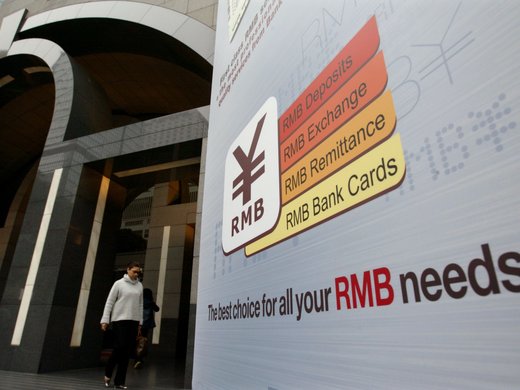On January 10, New York City Mayor Bill de Blasio announced that the city pension fund will divest roughly US$5 billion from fossil fuel-related firms and that the city will sue major oil companies for their contributions to climate change.
This movement follows a trend of impactful divestment initiatives. Caisse de dépôt et placement du Québec announced that it plans to reduce its investments in fossil fuel by 25 percent. And overseas, the Norway Sovereign Fund, the world’s largest sovereign wealth fund, announced that it will drop oil investments and replace them, at least in part, with private equity investments.
The wave of divestment strategies — whether instigated by ethics or fund managers looking to hold on to all possible returns — isn’t going anywhere. High-profile divestment announcements, endorsements and campaign platforms are influencing the share price of fossil fuel firms immensely.
It seems that the financial sector has heard the warnings of Mark Carney, the governor of the Bank of England, and a co-chair, with Michael Bloomberg, of the Financial Stability Board’s Task Force on Climate-related Financial Disclosures. Environmental and climate-related risks are of material interest to the financial sector, and investors that ignore these risks are missing opportunities for additional financial returns.
The financial shift isn’t just about excluding investments that have a negative effect on climate change; it’s also about investing in companies and projects with positive impacts on the environment and climate change. Recently, green bonds — which help finance projects with positive environmental outcomes — exceeded the $120 billion issuance mark in 2017, and they are expected to do even better in 2018.
As a safeguard, a portion of institutional portfolios are usually placed in bonds. Given that green bonds have the same return as conventional bonds but create an additional environmental return, green bonds are particularly attractive for institutional investors. Green bonds fit into a fixed-income asset class, all the while increasing the “greenness” of a portfolio and the investor’s reputation with beneficiaries or stakeholders.
All of that said, divestment strategies and green bonds are both still in their infancy. Many conventional investors still ignore environmental and climate change-related criteria that could help them to avoid financial risks, increase their returns and have a positive impact on the environment. And that ignorance is reflected in academic publications; finance journals still tend to ignore environmental risks and opportunities for finance and investment.
Slowly, that academic narrative is changing.
For instance, the academic Journal for Sustainable Finance and Investment recently published research addressing the connection between finance, investing and sustainable development. Further, a 2017 study by Irene Henriques and Perry Sadorsky suggests that divestment portfolios actually perform better than their conventional counterparts.
Empirical studies for both the international and the Canadian financial markets suggest similar results. Mutual funds that are more exposed to climate change risks have lower returns than those with lower exposure. And divesting from fossil fuel-related firms, or utilities in the fossil-fuel-heavy Canadian Index (Standard & Poor’s/Toronto Stock Exchange Composite Index) reduces the carbon footprint of the portfolio and increases financial returns.
Increasingly, investment research suggests that excluding investments with low social and environmental performance helps to reduce risk. And looking for investments based on positive criteria — such as positive contributions to climate change mitigation — increases financial performance in times of high market volatility and lowers the likelihood of credit risk defaults.
Divestment shouldn’t just be an ethical decision, then — there is a strong financial case for it as well. This reality is particularly important for institutional investors, who have a fiduciary duty to not forfeit any possible financial returns.
Research in favour of socially responsible investment strategies, paired with the wave of high-profile divestment announcements, is creating a sort of snowball effect among investors. Instead of asking why they should divest from fossil fuels or invest in green bonds, investors will begin asking why they shouldn’t. And if such questions become the norm for central bankers, the International Monetary Fund and big institutional investors, the finance sector might not only reap its own reward, but become an unlikely agent of positive environmental impact.



